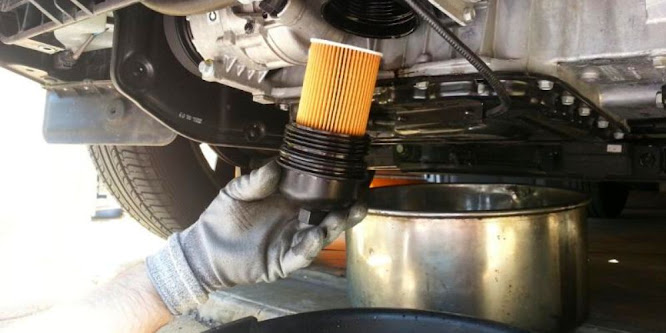Understanding Car Burning Oil: Signs, Causes, And Solutions
Constant vigilance and prompt maintenance contribute to the longevity of any vehicle. Along with watching for visual and sound notifications on your dashboard, you also have to check your car’s fluids, listen for any strange noises, look out for smoke, and even stay alert for odd odors coming from the engine, vents, or exhaust pipes. Such is the case with your lubrication system. One important sign that you need to watch for is your car burning oil. Whatever the cause is, this problem has to be repaired right away to avoid severe damage to your motor. Read on to learn about signs, causes, and the best solutions to stop your car from burning oil.
What Is Car Burning Oil?
If you find that your oil level runs low more often than not, that means your engine is consuming either by burning or leaking. In the case of your car burning oil, the fluid is bypassing the piston rings and going into the combustion chamber. As seals and gaskets age and get worn out, the oil may leak from the engine and land on exhaust parts and other areas that get extremely hot. When this occurs, your car smells like burning oil. Also, when internal parts of the engine are not functioning to their full capacity, then the oil will leak into areas where it’s not supposed to go. For this reason, you need to have the engine examined and properly diagnosed by a knowledgeable mechanic before you land in a dangerous situation or end up with a severely damaged engine.
Signs Of Car Burning Oil
If you are wondering how, you would know if your car is burning oil, watch for the following signs:
- A fast decrease in the oil level
- Car smells like burning oil
- Bluish smoke emitting from the tailpipe
When you check the dipstick on multiple days in a row, and the oil level drops from day to the next, your car is burning oil. Also, the indicator for your oil quality and oil pressure located on the dash dropping at a fast rate indicates that your car is burning oil.
Along with a drop in your oil level, you may detect a pungent odor coming from your engine. That is the odor given off by oil that has leaked and landed on a hot part of the engine, and there is no mistaking the source.
Plus, you will see thick, bluish smoke blowing from your tailpipe while your motor is running. The smoke increases immensely when you accelerate or decelerate which means your car is burning oil fast.
What Causes A Car To Burn Oil?
Along with a keen awareness of the signs of car burning oil, you might become familiar with the causes of this problem.
Worn-Out Oil Filter Cap
The cylinder head gasket gets worn out over time due to constant exposure to heat and cold. While its primary function involves sealing the oil galleries in the block, if it leaks, then the oil will pour out into the engine and cylinders, causing it to burn.
Broken Piston Rings
More specifically, the wiper ring and the oil-control ring serve the important purpose of keeping too much oil from going into the combustion chamber. If either one or both are worn or broken, the oil will then escape into the chamber where it is burned, thus causing a rapid rate of oil consumption. The burning then causes carbon deposits to form on the piston rings and cylinders. As a result, the blow-by gasses enter the crankcase while gathering oil vapor.
Oil Going Into The Turbocharger
If your vehicle is turbocharged, then you need to closely watch your seals for breakage or wear. Worn-out seals cause the oil to leak past the bearing and either go into the compressor, which is the warmest section that leads to intake, or into the exhaust of the turbo which is the cooler side. Either scenario causes oil to burn and ultimately ruins bearings, resulting in turbo failure.
Worn Or Blocked PCV Valve
The positive crankcase ventilation valve (PCV) has the important role of facilitating the recirculation of combustion gasses back into the combustion chamber where they are burned before exiting through the exhaust. However, a blocked or worn PCV causes an oil blowback where the oil is sucked into the engine (as opposed to gas) through the air intake where it burns.
How To Deal With Car Smells Like Burning Oil?
For the immediate issue of your car smelling like burning oil along with the telltale blue smoke coming out of the tailpipe, you need to take your car into the shop asap. From there, you can request an inspection of the piston rings, valve seals, PCV system, and head gaskets. At this point, you can only hope that the problem was addressed in time, and your engine can be saved. Nonetheless, before you ever get to this point, you should have these parts checked annually perhaps during a regular oil change. Also, follow the manufacturer’s recommendations for the frequency of replacement.
Likewise, if you have your oil filter changed at every oil change, you can avoid these problems as well. Plus, you should check your oil level on a weekly basis and keep it topped off according to your car’s manufacturer’s recommendations.
Finally, you might consider altering your driving habits, starting with “warming up” the engine for about five minutes before you go anywhere. This practice promotes more efficient oil circulation. Once you are on the road, be mindful of your speed. Driving at too low or too high of an RPM overworks the engine, causing it to consume oil and fuel faster.
And consider using only optimal products for your car’s lubrication system like Shield Lubricant’s automotive and industrial oils and lubricants. We offer quality oil for gasoline and diesel engines in addition to greases that lubricate and protect parts and equipment from corrosion and specialty fluids. Plus, you can count on Shield for other high-end products that lengthen the life of your vehicles such as radiator water, coolants, brake fluid, steering fluid, and more. Contact us for more information or to place an order.
Original Source: https://shieldoils.com/car-burning-oil-signs-causes-and-solutions/




Comments
Post a Comment